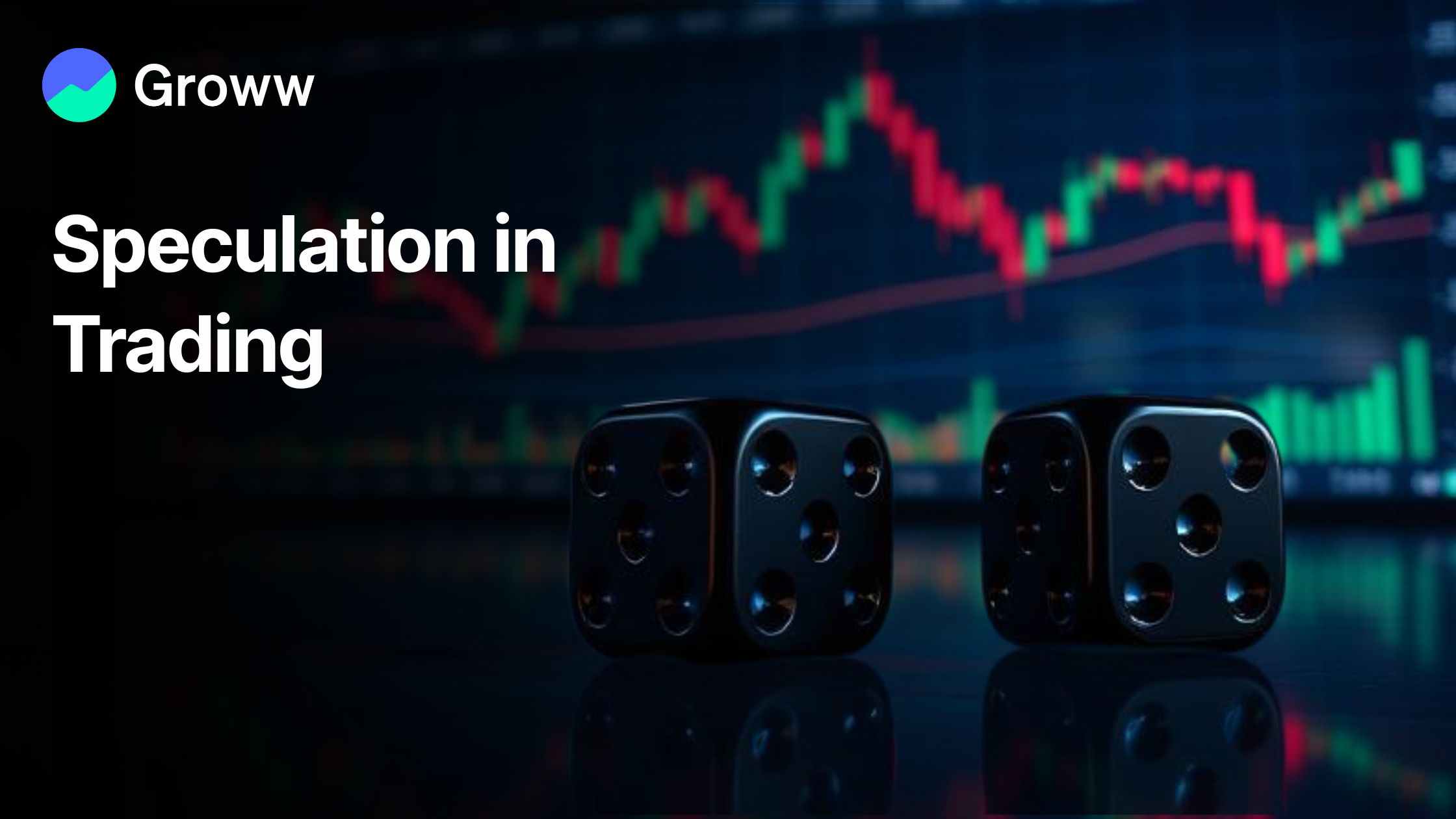Speculation in Trading

Speculation or speculative trading is where traders look to earn profits from market price movements, upwards or downwards. It is different from investment, which looks deeply at more fundamental factors and values. So, the difference between speculation and investment is that the latter involves buying assets in anticipation of generating appreciation/returns over a certain period, while the former is more about profiting from short-term fluctuations in the market.
Speculation is not fixed in any one direction, while investing is to enable buying or selling to maximise profits while accepting risks in the process. However, contrary to common perceptions, stock market speculation is not always a high-risk, high-return activity. There has to be a proper risk management strategy in place for speculators, and you’ll find examples of speculative trades across black swan events, which are hard to predict and extremely rare.
Types of Speculation Strategies
There are several types of speculators in the market. Some of the strategies include the following:
- Day Trading - Buying and selling assets within the same day to profit from short-term price fluctuations.
- Swing Trading - Focusing on earning profits from short- to medium-term price swings, usually over some days to even weeks.
- Options and Futures Trading - This involves using options and futures (derivative contracts) to bet on future prices of assets. These contracts enable leverage, amplifying the potential gains and losses.
- Short Selling - This is another strategy where stock market speculators profit from declines in asset prices through borrowing, selling, and then buying shares back at lower prices.
- Forex & Commodities Trading - This involves speculation in commodities such as agricultural products, gold, and oil, and also foreign exchange or forex markets, owing to high volatility.
- Margin Trading - This involves borrowing money from brokers to increase trading size, thereby scaling up potential profits or losses.
- Arbitrage - It is about tapping price differences of the same asset in multiple markets and thus earning profits.
- Pattern Trading - This strategy makes use of historical price data and other patterns to predict future movements in the market.
- Hedging - There is an intricate relationship between hedging and speculation, where the former is a risk management strategy. Speculators thus take positions in specific assets to offset potential losses in other related assets. Hedging aims to offset risk through a specific position. Speculation, on the other hand, is about taking calculated risks to earn profits.
- Market Timing - This involves attempting to buy low and sell high in anticipation of market trends.
Risk and Reward in Speculation
Speculative trading carries both inherent risks and rewards. There is always the risk of losing money in case the market moves against you, despite the possibility of earning higher rewards in case the move works out positively.
Of course, the risk/reward ratio (or the risk/return ratio) has to be examined carefully, indicating the prospective reward that one can get in return for every rupee they risk on any investment. High-risk, high-reward trading may often lead to major profits, but also sizable losses arising from market uncertainty and volatility.
Famous Speculators and Their Approaches
Let’s look at the approaches and stories of some luminaries who have transformed market speculation into an art form.
- George Soros - Famous for his high-risk trading approaches, particularly in currency markets, and also for the reflexivity theory, which indicates that market expectations and beliefs may ultimately reinforce themselves.
- Jesse Livermore - His career has seen not just huge profits, but also sizable losses. However, he learned from these errors and focused on the importance of deeply understanding trends in the market and awareness of weaknesses.
- Ed Seykota - Seykota is a follower of trends, leveraging a systematic trading approach that is based on mechanical signals for identifying and riding the market trends.
- Warren Buffett - Perhaps the most famous of all, Warren Buffett is a value investor who emphasises the identification of undervalued entities and holding them for the long haul.
- Benjamin Graham - He was a value investing legend, focusing on the importance of understanding more about the fundamentals of a company, and also investing in assets that are essentially undervalued.
How to Manage Risk in Speculation
Speculative trading can only be carried out successfully if there is a solid risk management plan in place. Some of these strategies include diversifying the portfolio across multiple assets to spread out risks and stabilise returns, while also hedging on specific assets for this purpose.
Another option is to chalk out a solid risk management and trading strategy based on thorough analysis, research, and techniques like stop-losses to minimise losses.
Conclusion: Balancing Speculation and Prudence
When it comes to speculation, it is important to understand that a balance has to be struck between prudence and speculative activities. While this form of trading can be profitable, it is important to remember that a prudent approach towards understanding market fundamentals and trends is the key to minimizing probable losses due to unexpected market shifts.